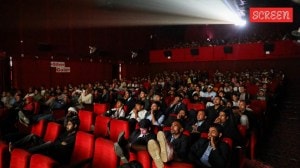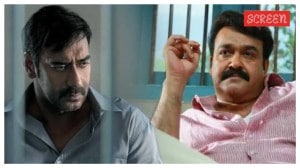The way we grieve now
How the internet becomes a shrine for those who have passed away
How the internet becomes a shrine for those who have passed away
I was getting off a long Skype call on July 13,ready to soak up some sun in Germany,when I first heard the news. It came on my Twitter feed. Then it trickled onto my Facebook timeline. An email from a friend followed shortly. Dr Sharmila Rege,one of the bravest and most persistent voices of Indian feminism,had succumbed to cancer and died on that fateful day. Fighting my tears,I picked up the phone and called up a common friend who confirmed the news. There are some people who you believe are immortal,because they are the beacons of light,of what is right,and of what is needed in this world. A sociologist,a feminist scholar and activist,and a person of incredible moral strength and political conviction,Sharmila Rege was my teacher when I was a post-graduate student at the Pune University. She taught me how to see the world,how to get angry about it,and how to fight for what you believe in. She taught me how to see the blindsides of my own privilege and to use it to fight for those whose voices go unheard in the cacophony of middle-class politics.
Far removed from the circle of people who Rege has inspired,transformed and helped through their academic and political lives,I felt unable to deal with the grief and the absolute numbness that this news inspired. From this distance,there was nothing I could have done no hand to extend,no release of empathy from seeing others mourn with me,no rituals that would help share the sense of loss. And so I did what comes naturally to me. I turned to the internet. I set up a search on Twitter to see what others had to say about it. I made a status update,tagging her on my Facebook page. I went to her Wikipedia page,was shocked at how small the entry on her gigantic work is,edited the page to reflect that she is no more with us,and added a few references of her recent work.
Then I searched for her on Google Images,looking at that familiar face,resilient,smiling,angry. While browsing through those pictures,I finally broke down and cried myself silly,remembering the 11 years of knowing her as a mentor,a friend,a colleague and a hero. All alone,sitting behind my laptop,I suddenly felt connected to the larger sensorium of grief that surrounded her loss.
Even though Singularity that magical moment when humans will be able to download all of themselves into machines and live forever is far away,we seem to have reached a time when a lot of our digital selves are going to outlive us. The internet is emerging as the space that people turn to,to cope with the death of somebody they love. Blogs that invoke the dead,telling them things that never got told when they were alive,websites which are shrines to the memory of those who have passed on,Facebook pages to remember the significance of the person gone,and Tumblrs that collect testimonials of grief to offer succour to those who are left behind have all become a part of urban digital lives. It is common for social media platforms to become outlets for collective rage and grief. But they also give people the space to mourn and record the impossible pain of being alive at moments of great loss.
Our avatars are going to outlive us. The digital spaces we inhabit are going to be more long-lasting than the material worlds we dwell in. Archives of our being,our actions,connections and transactions are going to reside on some server somewhere,not only as latent records but also as interactive data that simulates some of our actions. Companies like Google and Facebook are already considering what is to be done with the data of those who are physically dead but have accounts that are still alive. I am never going to speak to Sharmila Rege again. But I am still able to read her timeline on Facebook and tag her in my status updates. I am never going to hear from her again,but the hashtags around her are making me connect with people who were a part of her life. I am never going to meet her again,but on the various homage spaces that people are creating,I am seeing pictures of her that I would never have access to. I am never going to ask Sharmila Rege again for her opinion on questions that perplex me,but the community that she has built through her work,has connected through the digital,and offers hope that her words,actions and thoughts live on even though she doesnt.
- 01
- 02
- 03
- 04
- 05































